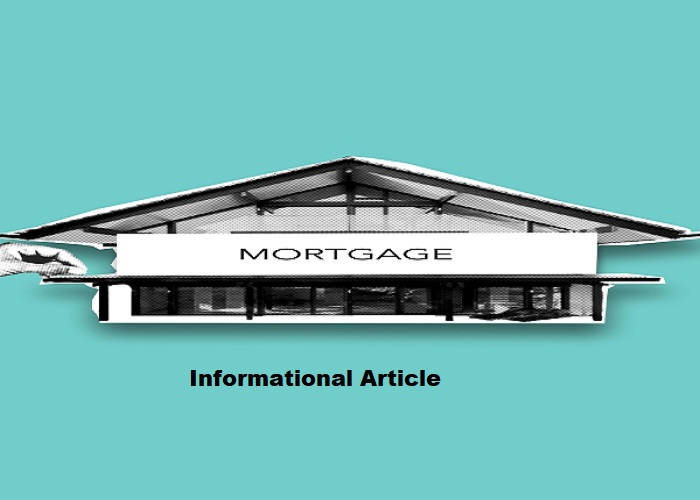Introduction
The Federal Housing Administration (FHA) plays a crucial role in the United States housing market by providing mortgage insurance on loans made by FHA-approved lenders. Established in 1934, the FHA aims to improve housing standards and conditions, provide an adequate home financing system through the insurance of mortgage loans, and stabilize the mortgage market. This article provides a comprehensive overview of insuring FHA mortgages, covering everything from the basics to the intricate details.
1. Overview of FHA Mortgages
1.1 What is the FHA?
The Federal Housing Administration (FHA) is a U.S. government agency created in 1934 to facilitate greater homeownership. The FHA provides mortgage insurance on loans made by FHA-approved lenders, protecting them against losses if the borrower defaults.
1.2 Purpose of FHA Mortgages
FHA mortgages are designed to make homeownership more accessible, particularly for first-time buyers and those with less-than-perfect credit. By insuring loans, the FHA encourages lenders to offer favorable terms, such as lower down payments and flexible credit requirements.
2. Benefits of FHA Mortgages
2.1 Lower Down Payment Requirements
One of the most significant benefits of FHA loans is the lower down payment requirement. Borrowers can secure a home with as little as 3.5% down, compared to the typical 20% required for conventional loans.

2.2 Flexible Credit Requirements
FHA loans are accessible to borrowers with lower credit scores. While conventional loans may require a minimum credit score of 620 or higher, FHA loans can be obtained with scores as low as 580.
2.3 Assumable Loans
FHA loans are assumable, meaning that if you sell your home, the buyer can take over your mortgage. This can be a valuable selling point if you have a low-interest rate on your current mortgage.
2.4 Streamline Refinancing
FHA streamline refinancing allows borrowers to refinance their existing FHA loan to a lower interest rate with less documentation and underwriting. This makes it easier and faster to reduce monthly mortgage payments.
3. Eligibility Criteria for FHA Loans
3.1 Credit Score Requirements
To qualify for an FHA loan, borrowers typically need a credit score of at least 580 for the 3.5% down payment option. Those with credit scores between 500 and 579 may still qualify but must make a 10% down payment.
3.2 Income Requirements
FHA loans do not have a specific income requirement, but borrowers must demonstrate they have a steady income and can afford the mortgage payments. Lenders will assess debt-to-income ratios to ensure borrowers can manage their monthly obligations.
3.3 Employment Verification
Stable employment history is essential for FHA loan approval. Borrowers should have a minimum of two years of consistent employment, although there can be exceptions for those with gaps due to education or other valid reasons.
3.4 Property Eligibility
Not all properties are eligible for FHA loans. The property must meet certain standards and pass an FHA appraisal to ensure it is safe, sound, and secure. This appraisal process is stricter than those for conventional loans.
4. Applying for an FHA Loan
4.1 Pre-Approval Process
Before applying for an FHA loan, it’s advisable to get pre-approved. This involves a lender reviewing your financial situation to determine how much you can borrow, giving you a better idea of your budget.
4.2 Required Documentation
Applying for an FHA loan requires extensive documentation, including proof of income, employment history, credit report, tax returns, and bank statements. Having these documents ready can expedite the process.
4.3 Choosing an FHA-Approved Lender
Not all lenders offer FHA loans. It’s essential to select an FHA-approved lender to ensure your loan application is processed correctly and efficiently.
4.4 Loan Application Process
The FHA loan application process involves submitting your documentation to the lender, undergoing an FHA appraisal, and awaiting approval. This process can take several weeks, depending on the lender and your financial situation.
5. Understanding FHA Mortgage Insurance
5.1 What is Mortgage Insurance Premium (MIP)?
Mortgage Insurance Premium (MIP) is an insurance policy required for all FHA loans. It protects the lender in case the borrower defaults on the loan.
5.2 Upfront MIP vs. Annual MIP
FHA loans require both an upfront MIP, which is typically 1.75% of the loan amount, and an annual MIP, which is divided into monthly payments. The annual MIP varies based on the loan term and loan-to-value ratio.
5.3 How MIP is Calculated
The MIP calculation depends on the loan amount, term, and loan-to-value ratio. Borrowers can expect to pay an upfront fee and ongoing monthly premiums as part of their mortgage payment.
5.4 Cancelling FHA Mortgage Insurance
MIP can be cancelled under certain conditions. For loans with terms longer than 15 years, MIP can be cancelled once the loan balance reaches 78% of the original home value, provided at least five years have passed. However, for loans after June 3, 2013, MIP is required for the life of the loan if the down payment was less than 10%.

6. FHA Loan Limits
6.1 Determining Loan Limits
FHA loan limits vary by county and are based on median home prices in the area. These limits are updated annually and can affect the maximum loan amount borrowers can receive.
6.2 Impact of Loan Limits on Borrowers
Loan limits can influence a borrower’s ability to purchase homes in high-cost areas. Understanding these limits helps borrowers plan their home purchase within the allowable range.
7. Types of FHA Loans
7.1 Fixed-Rate FHA Loans
Fixed-rate FHA loans have a consistent interest rate for the entire loan term, offering stability in monthly payments.
7.2 Adjustable-Rate FHA Loans
Adjustable-rate FHA loans start with a lower initial interest rate, which can change periodically based on market conditions, potentially leading to higher payments over time.
7.3 FHA 203(k) Rehabilitation Loans
FHA 203(k) loans provide funds for purchasing and renovating a home, making it ideal for properties needing significant repairs.
7.4 FHA Energy Efficient Mortgages
These loans help homeowners finance energy-efficient improvements to their existing homes, reducing utility costs and increasing home value.
7.5 FHA Reverse Mortgages (HECM)
Home Equity Conversion Mortgages (HECM) allow seniors to convert home equity into cash without repaying the loan until the home is sold or vacated.
8. Common Myths about FHA Loans
8.1 FHA Loans are Only for First-Time Buyers
Contrary to popular belief, FHA loans are available to all qualified buyers, not just first-time homebuyers.
8.2 FHA Loans Have Higher Interest Rates
While FHA loans can have higher upfront costs due to MIP, their interest rates are competitive with conventional loans.
8.3 FHA Appraisals are Tougher than Conventional Loans
FHA appraisals ensure the property is safe and habitable, which benefits both the lender and the borrower, but they are not necessarily more stringent than conventional appraisals.
9. Comparing FHA Loans to Conventional Loans
9.1 Down Payment Requirements
FHA loans require as little as 3.5% down, whereas conventional loans typically require at least 5% to 20% down.
9.2 Mortgage Insurance Differences
FHA loans require MIP, while conventional loans require Private Mortgage Insurance (PMI) for down payments less than 20%.
9.3 Credit Score Flexibility
FHA loans are accessible to borrowers with lower credit scores compared to conventional loans.
9.4 Loan Limits and Property Types
FHA loan limits vary by county and are generally lower than conventional loan limits. FHA loans also have specific property requirements.
10. FHA Loan FAQs
10.1 How long does it take to get an FHA loan?
The process typically takes 30 to 60 days, depending on the lender and borrower’s preparedness.
10.2 Can I have two FHA loans at the same time?
Generally, no. Exceptions exist for relocations or significant life changes that necessitate a second FHA loan.
10.3 What happens if I default on an FHA loan?
Defaulting can lead to foreclosure and significantly impact your credit score. The FHA’s foreclosure avoidance program can provide assistance.
10.4 Are FHA loans assumable?
Yes, FHA loans can be assumed by qualified buyers, which can be advantageous in a high-interest-rate environment.
11. Conclusion
11.1 Summary of Key Points
FHA loans offer numerous benefits, including lower down payments and flexible credit requirements, making them an excellent option for many homebuyers.
11.2 Final Thoughts and Recommendations
Understanding the ins and outs of FHA loans can help potential homeowners make informed decisions. Consult with an FHA-approved lender to explore your options and find the best mortgage solution for your needs.


